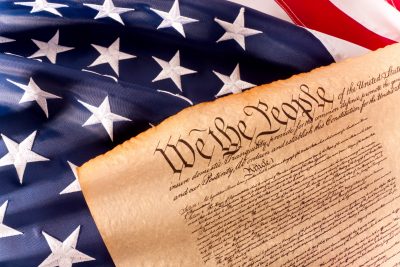Topics

Participants (7-12 Grade Social Studies teachers) will be immersed in the historical, social, political, and legal components of the four landmark Supreme Court cases listed above as they discuss these questions:
Bill of Rights and Fourteenth Amendment
Participants will examine the Bill of Rights and the Fourteenth Amendment from a legal and historical context. They will also learn about the Supreme Court’s evolving approach to applying the Bill of Rights against state and local government action. ullamcorper mattis, pulvinar dapibus leo.
Right to Effective Counsel
Participants will examine the case of the Scottsboro Boys from Powell v Alabama that established the right to effective counsel and then learn about the legacy and application of this right in subsequent cases from legal scholars and historians. Participants will experience a “You be the Justice” lesson as well as participate in a virtual field trip to the Equal Justice Initiative’s National Memorial for Peace and Justice. Participants will converse with education directors from EJI about their work and the application of the legal principle “right to counsel.” The main question for these sessions will be “What does effective counsel require?”
Freedom of Association
Participants will examine NAACP v. Alabama against the historical background of the Montgomery Bus Boycott and the state of Alabama’s demand that the NAACP produce its membership list. They will also participate in a “You be the Justice” lesson and virtual field trips to the Rosa Parks Museum and other Civil Rights landmarks in Montgomery, Alabama. Historians and legal scholars will lead discussions with participants about the complex application of this fundamental right to government efforts since the September 11th attacks to identify those associated with terrorist organizations and, more recently, with hate groups.
Gender Discrimination
Participants will have the unique opportunity to hear directly from Joseph Levin, the lead attorney in the gender discrimination case of Frontiero v Richardson, who also gave Ruth Bader Ginsburg her first opportunity to argue before the Supreme Court in this case. In addition, participants will experience a “You be the Justice” lesson and discuss the application of the Court’s decision to more recent cases as we debate when, if ever, the government can treat people differently on the basis of gender.
Racial and Political Gerrymandering
Participants will experience a “You be the Justice” lesson and a gerrymandering simulation that can be easily adapted to their own local state/region. We will study the case of Gomillion v Lightfoot, which outlawed racial gerrymandering. We will then discuss with historians and legal scholars the challenge of applying the principles of that case to more modern forms of political gerrymandering and the role of the courts in determining whether or not congressional districts are drawn fairly. Participants will also participate in virtual field trips to Tuskegee, Alabama to gain a historical and geographic context for the original lawsuit.
Lesson Development
Historians, legal scholars, legal researchers, and teacher educators will assist participants as they create lessons on Supreme Court cases and issues.




